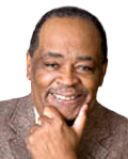
Magical Thinking
American Culture and Magical Thinking
American Culture and Magical Thinking
Posted December 28, 2012
In the new century “American exceptionalism” must be based on the truth that it is different from other countries because it has become a composite of other countries.
I was questioned about my feeling that Obama is more magical, and that America is becoming more magical, because of the impact of the broadest possible range of human cultures on his (and America’s) way of seeing reality.
I got a response to The Science of Magical Thinking from Sara Ting, A Chinese American, with deep cultural roots in America, who has been working for decades in Boston to create the World Unity Landmark.
“The key is to make sure we don’t get in the way of the divine guidance. This is what can be difficult and challenging to discern. Our ego or our intellectual mind can get in the way of divine guidance.”
This is not some bit of wisdom from Eastern philosophy. It is rather a pervasive idea in America; and it has greater cultural support in our nation because of our diverse culture. It is hard to imagine such an idea being as strong in a more homogenous culture, especially if that culture was overly dominated by the view that empirical science constitutes the only authoritative way to see the world.
What other nation in the world could sensibly sing the Michael Jackson/ Lionel Richie song: “We are the World.” Imagine that song coming from China or Spain, India or France, Nigeria or Germany. The mood of the song is not imperialistic as in some other formulations about American exceptionalism. The song’s mood is prayerful.
Tony Abulu, a Nigerian who has lived in America for 30-years, and is a dual citizen, of sorts, of Africa and America (a new kind of African American) has a film “Doctor Bello” that will be distributed in America in February 2013. The film will strengthen in the American mainstream the ancient idea about the spiritual nature of reality.
In the film there is a very refreshing scene of an ancient healer having a pleasant conversation with plants. The scene is not scientist fiction or fantasy. It is realism. It reminds me of George Washington Carver, the most under-sung genius in the history of American science. Carver said:
I wanted to know the name of every stone and flower and insect and bird and beast. I wanted to know where it got its color, where it got its life”
By some accounts Carver cultivated a practice of going out early in the morning, before they began their day, and talking to the stones, flowers, insects, and beasts.
Unscientific? In some ways, but symbolic of the great impact that non-Western thought has long had on the exceptional, potentially magical, culture of America. Carver, born a slave, saw the interaction between spirituality and science long before it was fashionable in mainstream American culture.
A question I got on Race Matters but then Again it Doesn’t was: How much do I believe in race or magic? Emails from Sara and Tony popped into my inbox at virtually the same time. Being magical is not really about what happens in the world of infinite possibilities, but rather what we choose to notice, what we choose to allow to occupy our consciousness long enough for faith to work towards making it a part of our objective reality, individually, nationally, and universally.
George Davis is author of the new spiritual spy novel, The Melting Points, about three women pursued by danger as the clockwork universe melts around them. In development is a television series based on his soon-to-be-published nonfiction novel, Branches, which continues the spiritual journey that Alex Haley dramatized in “Roots.” It continues the journey of America towards becoming an exceptional, multiracial nation.

